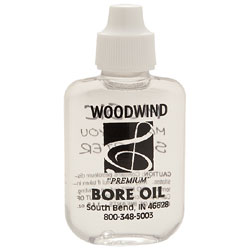| This Week’s Topic… | |||

Best viewed in
|
Oiling the drones…or not What about oiling the drones? Oiling is one of those issues that causes heated arguments. Obviously for those of you playing pipes made from Polyplenco material…this discussion is irrelevant. As a maintenance issue - on a well conditioned, frequently played, well cared for pipe, not exposed to extremes of heat or humidity- you probably don't "need' to oil it. However, if you occasionally leave your pipe in the car, near a radiator, play in high humidity/rain or leave you pipes unplayed for a few weeks or more - you might want to oil them. If we consider "oiling" to be an "answer", the underlying "question" is, "how do I prevent my pipes from ever cracking?" Let's understand the issue... When you play, you put very humid air into the inside of your instrument. That’s why most pipers play with a moisture control system. If the moisture is absorbed by the wood, the wood will swell to accommodate the molecules of water. Only the wood near the bore will swell, not the rest. This creates a stress in the wood which can result in a crack or split. Although it is sometimes presented that oil creates a layer on the surface of the wood so that moisture can't get to the wood - more correctly, moisture can only get through the oil and into the wood "slowly". This lets the wood swell slowly. As long as the rate of swelling is slow, moisture can migrate through the wood and allow the entire piece to swell slowly. In this way there is minimal stress built up in the wood and minimal internal forces to cause a crack.
Another reason for oiling the bores is to help smooth the surface of the bore. A rough bore acts like a filter to remove some of the harmonics of the sound. In general, smoother bores have more high frequency content in their harmonics. Polishing or oiling results in a smoother bore and increases the fraction of high frequencies coming out of the drone. Depending upon your point of view, this may or may not be a good thing! Some pipes have the reputation for having gun-barrel-smooth bores and do not require oiling. A rough bore also presents more surface area for absorption of moisture from your breath into the wood. Rough surfaces have more surface area and, therefore, take up moisture faster and potentially result in a more rapid build-up of stress. If the rate of moisture uptake is slowed sufficiently to allow equilibration of the moisture level between the wood on the inside and outside of the drone, the wood will not build up stress and will not crack. Once the wood is equilibrated to a humidified level and the drone is played regularly, the moisture level in the wood will not change and the drone will not split. The roughness of the bore can be treated by either oiling or polishing. Oil or wax creates a water-resistant layer that slows the uptake of water into the wood, it also fills in the imperfections in the wood surface making the surface smoother. Polishing reduces the surface area available for absorption of moisture and thus keeps the rate low. Both techniques will reduce moisture uptake. Both approaches will alter the sound of the drones. The decision to oil or not is ultimately yours to make. |
||
